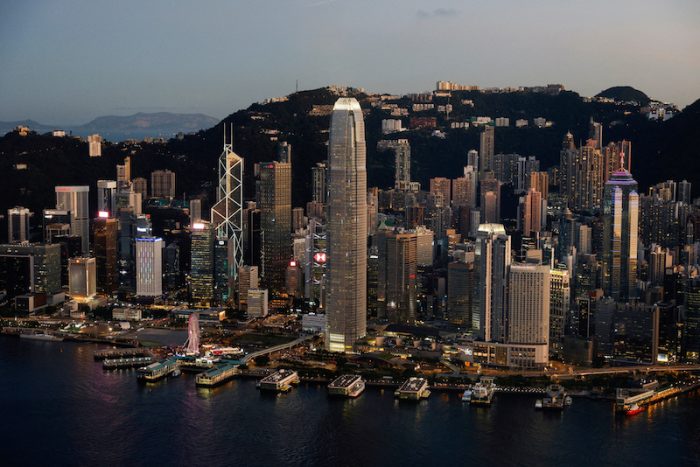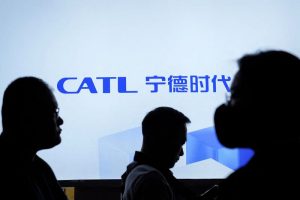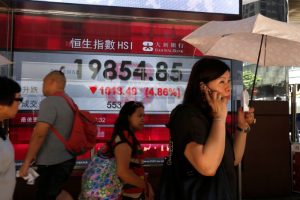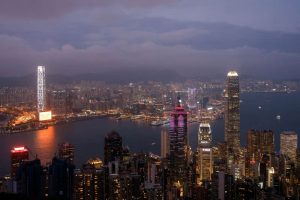Hong Kong has unveiled plans to turn around its battered economy with a range of key moves aimed at shocking its ailing property sector back into life.
But, analysts point out, the territory’s leader also revealed a further tightening of national security laws which have continued since the mass pro-democracy protests in 2019.
The policy blueprint, the second delivered by Chief Executive John Lee since he took office, comes at a critical moment for Hong Kong, as the Chinese-ruled former British colony looks to emerge from the turmoil of the last few years.
The protests of four years ago, the Covid lockdown, the emigration of tens of thousands of residents and unease over a national security crackdown have all sapped energy from one of Asia’s most vibrant cities.
Also on AF: Chinese, Russian Firms Agree Multiple Deals as Ties Deepen
Lee, a former police officer, in a three-hour speech, outlined policies that ranged from slashing property transaction fees to geopolitics and offering cash bonuses for local parents to have more babies.
“Hong Kong has many strengths. We should treasure them, without inflating our ego. In face of competition, we should never be complacent, we should not be frustrated or doubt ourselves when we lag behind,” Lee said.
Lee’s primary focus was on stimulating Hong Kong’s economy, which contracted 3.5% last year, and luring back international businesses and capital at a time when the local stock market has struggled and families have sold flats and moved abroad.
But Lee, who was sanctioned by the US government for his role in cracking down on freedoms after the pro-democracy protests in 2019, also emphasised the need to bolster national security, a priority for China’s President Xi Jinping.
“External forces continue to meddle in Hong Kong affairs,” he said, adding that fresh security legislation including laws to counter alleged espionage activities, known as Article 23, would be enacted by the end of 2024.
“We should pay particular attention to those anti-China and destabilising activities camouflaged in the name of human rights, freedom, democracy and livelihood,” he said.
To enhance Chinese national identity and unity, Hong Kong would be rolling out “patriotic” education in local schools, Lee said. He also said cybersecurity would be strengthened to protect critical infrastructure.
Some observers say Lee’s economic and security priorities are difficult to balance.
“The Hong Kong business environment is already facing challenges due to an unwelcoming atmosphere and a repressive political climate,” said Sunny Cheung, an exiled activist and visiting fellow at John Hopkins University in Washington DC.
Lukewarm Investor Reaction
Turning to the property market, Lee said stamp duty, would be halved to 7.5% from 15% for second home buyers and non-citizen buyers with immediate effect, to help revive a sector that is one of the economy’s pillars.
And Lee said the government would continue to increase the overall supply of land for public and private housing.
The reaction from investors was lukewarm, with shares of Sun Hung Kai Properties and Henderson Land, two major residential property developers, closing down 0.5% and 0.7%, respectively.
Hong Kong had tried to cool the property market during a surge of nearly 300% in home prices in the decade to 2019. Since then prices have fallen 13%.
In August, property prices dropped to a seven-month low, and realtors expect them to end 2023 as much as 5% down.
“The relaxation of cooling measures is only a band-aid solution that is unlikely to reverse the downward trend of home prices,” said Joseph Tsang, chairman of property consultancy JLL in Hong Kong, citing the global economic downturn and interest rate hikes as lingering factors weighing on the market.
Lee said stamp duties for stock transactions would be reduced to 0.1% from 0.13% to help bolster liquidity in the Hong Kong market, and market data fees would be cut later this year to help brokerages.
He added Hong Kong would seek to strengthen its role as an offshore yuan centre and bolster financial ties to China, and enhance schemes to attract foreign talent.
- Reuters with additional editing by Sean O’Meara
Read more:
China’s New Bonds to Fight Climate Impacts, Lift Recovery
Hong Kong Battles to Boost Appeal, Business After Clampdown
China Tensions Leave US Firms Between a Rock and a Hard Place
Hong Kong Shuts Down After Heaviest Rain on Record
























